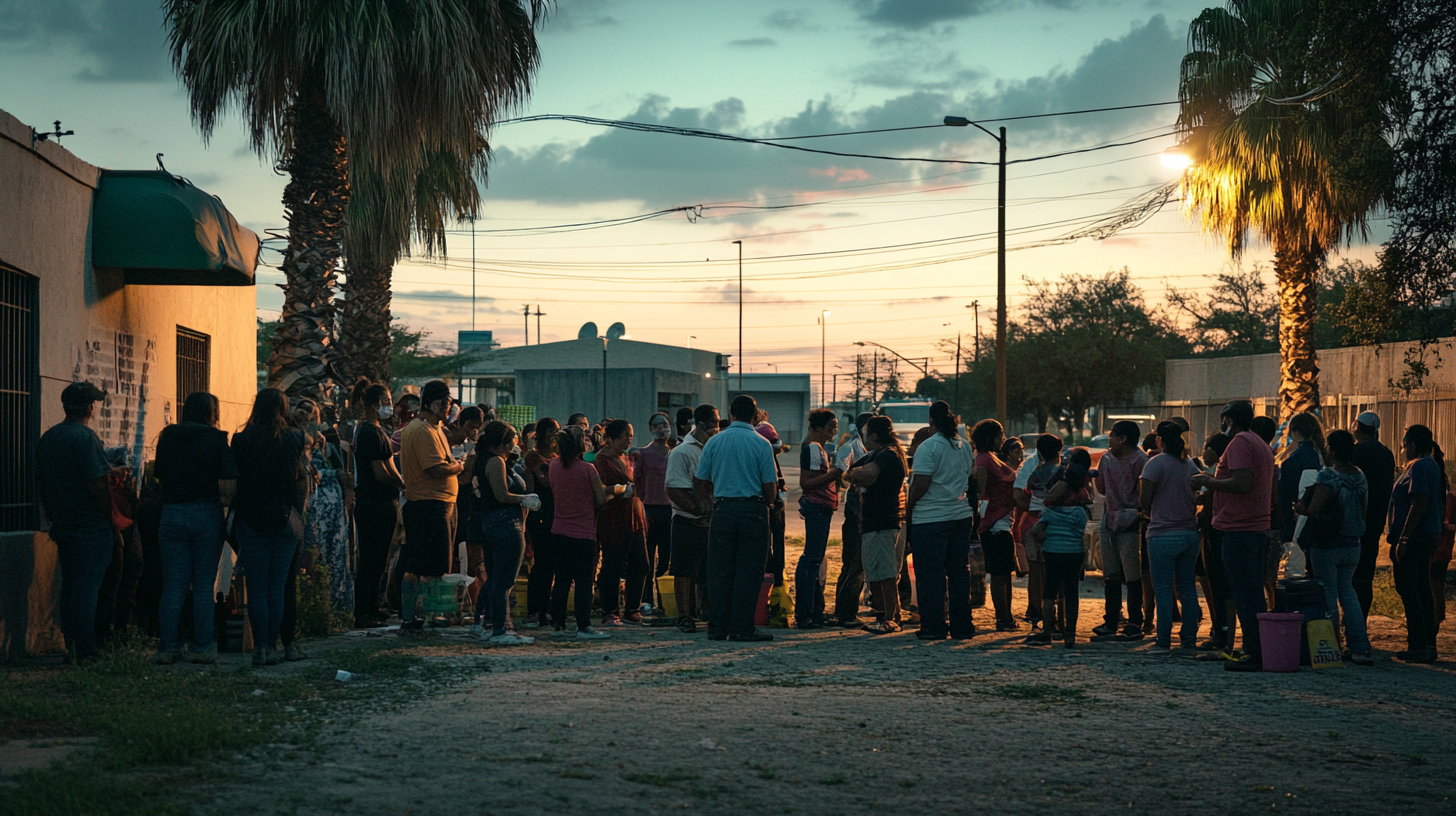Federal Reimbursements for Migrant Care Decrease Amid Decline in Border Crossings
As border crossings decrease, Rio Grande Valley (RGV) cities such as Brownsville and McAllen are preparing for reduced federal reimbursements allocated for migrant care. Historically, these cities have relied heavily on financial support from the Federal Emergency Management Agency (FEMA) to mitigate the costs of caring for an influx of migrants. However, with fewer individuals being processed at the border, these federal funds are anticipated to dwindle, raising concerns for Valley residents and local officials.
Brownsville and McAllen’s Past Dependence on FEMA
Brownsville and McAllen have been at the forefront of providing assistance to migrants entering the United States, often acting as initial points of contact for those seeking asylum. During peak times, Brownsville managed nearly 20,000 migrants weekly in 2023, requiring substantial city resources and community coordination, as noted by Commissioner At Large Tino Villarreal. “We have been dependent on FEMA reimbursements to cover critical services provided to migrants,” Villarreal explained. These reimbursements covered costs associated with shelter, transportation, and additional emergency services aimed at humane treatment and public health safety.
McAllen’s efforts were similarly significant, with City Manager Jeff Johnston recalling a month in 2021 when 30,000 migrants received aid from city resources. “It’s important to recognize the financial strain this places on local municipalities,” Johnston emphasized. “McAllen has received approximately $45 million in reimbursements over the past five years, but these funds have not fully covered our cumulative expenses.”
The Emergence of Asylum Seekers
This decrease in border crossings seems to stem from various geopolitical and policy-related shifts. Enhanced border security measures, diplomatic agreements with neighboring countries, and changes in U.S. asylum policies have contributed to lower migrant numbers at the southern border. While these measures aim to manage immigration flows efficiently, they also directly impact South Texas towns that built response infrastructures around migrant aid.
Valley residents, now expecting a reduction in emergency funding, brace for a potential shift in local budgeting and prioritization. The funds previously channeled into migrant care might now be reallocated into essential community services and infrastructure, a possibility welcomed by some yet complicated by financial uncertainty.
Community Concerns and Support Mechanisms
The mounting uncertainty surrounding funding has prompted a dialogue among community leaders and residents. “Though fewer migrants might mean less strain on our city services, we must assess how our community can continue to support those who do reach us,” said local activist Maria Barrientos. “It’s not solely about the numbers; it’s about maintaining the dignity and well-being of every individual.”
To alleviate fears, both Brownsville and McAllen officials assure constituents they are proactively seeking alternatives to bridge funding gaps. The potential opportunity lies in fostering partnerships with local non-profits and community agencies while lobbying for state assistance aimed at compensatory funding.
As Brownsville launches new initiatives like the downtown shuttle service catering to its growing population, city officials remain committed to addressing migrant aid in tandem. By recalibrating existing systems of care and engaging with local agencies, they hope to sustain supportive environments for all city residents.
Implications for the Future
The implications of reduced federal reimbursements extend beyond financial concerns, prompting broader discussions about regional policy adjustments and long-term planning for fluctuating migrant trends. Both Brownsville and McAllen consider innovative ways to leverage current resources while exploring sustainable funding avenues. Importantly, transparency and collective engagement with Valley residents are prioritized to ensure mutual understanding of operational shifts.
Ultimately, the Valley’s response to this evolving situation highlights its robust community solidarity and shows potential pathways for regions facing similar challenges. By focusing on local impact and proactive adaptation, these South Texas communities demonstrate resilience and strategic foresight in navigating uncertain times.
For those interested in further details or wishing to engage in city planning discussions, local authorities encourage public participation through various forums—both virtual and in-person—as they adapt to these new realities. Valley residents and stakeholders can remain informed through community announcements, newsletters, and local news platforms like RGV Local News.
This evolving situation presents an example of how national policies reverberate through local ecosystems, encouraging proactive collaboration, and strategic responses from community leaders and residents alike.







